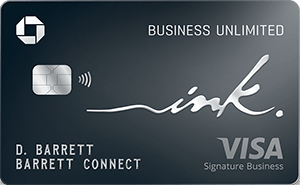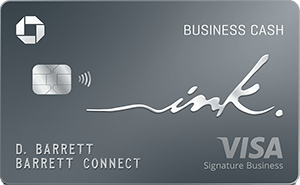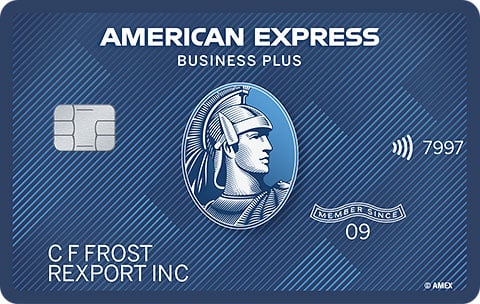How to Report Revenue on a Business Credit Card Application
Issuers use annual revenue, along with income and personal credit score, to determine approval for a business credit card.

Many, or all, of the products featured on this page are from our advertising partners who compensate us when you take certain actions on our website or click to take an action on their website. However, this does not influence our evaluations. Our opinions are our own. Here is a list of our partners and here's how we make money.
When reporting annual revenue on a business credit card application, issuers generally want to know your verifiable gross revenue from the previous year. While it’s tempting to puff up your total or include projections, a big revenue number isn’t necessary to get approved.
Annual business income is just one factor issuers consider; most card issuers also look at your personal credit history and income. That means even new businesses with little to no revenue can qualify for one of the best business credit cards if the owner has a strong personal credit score.
What is annual business revenue?
Annual business revenue is the total income your company generates over the course of a year — from products sold, services performed, fees received and interest or dividends earned — before subtracting tax deductions or operating expenses.
This figure is important, as it’s needed to apply for a business credit card, file taxes and qualify for a small business loan, among other things.
How to report revenue for business cards
It’s important to stick to the facts when reporting your business’ gross annual revenue on a business credit card application. But don’t sell yourself short. Here’s what to do.
Determine your gross annual revenue. This is your revenue before taxes and other expenses are taken out. This is different from profit, which is revenue minus costs.Gross revenue can include several sources of business income, such as selling business products and services, surplus equipment or property or even stock in your business.
Exclude any personal income. If you work a full-time job and sell items on eBay as a side hustle, for example, income from your full-time job shouldn’t be considered “revenue.” Instead, include it in the “income” field of the application.
Pull revenue from the right time frame. Your figures should be from the previous year. Generally, that means you shouldn’t be reporting sales projections as revenue, although some issuers may be OK with that if your business is new.
Make sure you can verify any information. Don’t report it if you can’t verify it. In some cases, issuers may ask you for paperwork to back up the numbers you reported, so it’s best to stick to what you can prove.
Update your revenue information as needed. Your company’s revenue can influence your credit limit. If your verifiable annual revenue improves after you’re approved, be sure to update that information with the issuer — especially if you want a business credit card with a higher limit.
Does your business generate a lot of revenue? Consider a corporate credit card. These cards are only available to incorporated businesses, and approval is based on factors like annual revenue and money in the bank instead of personal credit. For businesses that qualify, corporate cards can offer greater spending power — with no personal guarantee.
Can new businesses get a credit card without any revenue?
New businesses can still get a business credit card, even if they don’t yet have revenue. Simply put $0 in the annual revenue field if your business has no actual revenue. Issuers will instead look at your personal income and credit score to determine approval and credit limit.
You also don’t have to have a registered business — say, a limited liability company or an S corporation — to report revenue on a small-business credit card application. You can also report revenue as a sole proprietor.
You might be a sole proprietor if you:
Drive for a ridesharing service.
Sell items online.
Work as a freelance graphic designer.
If you’re a sole proprietor, be sure to indicate this on your application when the issuer asks about your business’ legal structure. And in the field where you add your business tax ID, put your Social Security number instead.
NerdWallet rating 4.9 /5 | NerdWallet rating 4.6 /5 | NerdWallet rating 4.4 /5 |
Annual fee $0 | Annual fee $0 | Annual fee $0 |
Intro APR 0% intro APR on Purchases for 12 months | Intro APR 0% intro APR on Purchases for 12 months | Intro APR 0% intro APR on purchases for 12 months from the date of account opening |
Recommended credit score 690-850 (Good - Excellent) | Recommended credit score 690-850 (Good - Excellent) | Recommended credit score 690-850 (Good - Excellent) |
1.5%
Cashback$750
2%-5%
Cashback$2,000
Find the right credit card for you.
Whether you want to pay less interest or earn more rewards, the right card's out there. Just answer a few questions and we'll narrow the search for you.















